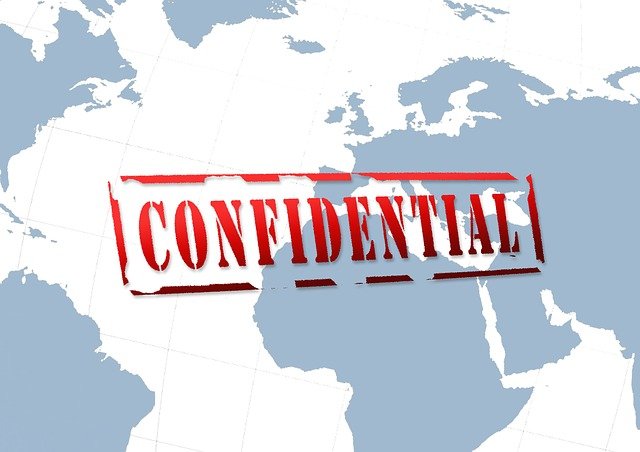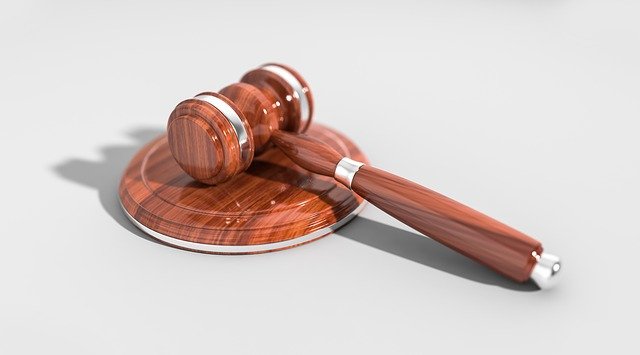Ghostwriters and Copyrights: Your Guide to Copyright Protection When Hiring a Ghostwriter
July 20, 2021
In the publishing world, copyright protection is like having a robust missile defense. It is an essential tool to safeguard valuable intellectual property. However, overlooking adequate copyright protection can lead to serious consequences.
When hiring a ghostwriter, copyright protection is even more relevant.
Ghostwriters are professional content creators hired to produce materials in exchange for a fee. As a result, ghostwriters have no claim over materials and content produced. This assumption suggests that ghostwriters have no right to royalties, copyrights, or credit.
In contrast, co-authors do hold some claim over rights and royalties. Consequently, authors and publishers must differentiate these roles precisely.
This article will distill valuable lessons pertaining to copyright protection and how authors and publishers can take appropriate steps to insure their valuable intellectual property.
Ghostwriting Copyright 101

The rights of a ghostwritten book belong to the client. The ghostwriter, by definition, holds no claim over the content. As such, ghostwriting works like any other kind of business transaction.
For example, an individual goes to a tailor to get a suit made. Naturally, the client, not the tailor, owns the suit. The same concept applies to the ghostwriter-client relationship.
However, it is worth noting that a book does not have a legal owner until there is a formal copyright file for it. In the United States, the Copyright Act defines “literary works” as those that are not audiovisual in nature. Consequently, literary works constitute text-based works, either in print or digital format.
As such, literary works, whether fiction or nonfiction, refer to written works. Videos, music, or photographs fall under a different kind of copyright protection. Therefore, this discussion focuses solely on literary copyrights.
The US Copyright Office facilitates the registration process. On the whole, it is a relatively simple process.
The electronic registration process is the fastest way to register a literary work. On the copyright.gov website, the “register a literary work” link allows users to access the registration portal. The portal takes users through the whole process, although some users may feel more comfortable doing the process by email.
The U.S. Copyright Office also receives mail-in registrations. However, this process takes much longer. Furthermore, some folks may feel more comfortable hiring legal counsel to perform the registration process.
The other key element required to register a literary work is an ISBN. ISBN stands for International Standard Book Number. Duly published literary works receive their particular ISBN.
According to the ISBN Agency, an ISBN facilitates the book supply chain process. ISBNs help publishers, retailers, and distributors identify the works, volumes, genres, editions, and formats for individual works. An ISBN consists of 13 digits, and each number emerges from a carefully produced formula.
Please bear in mind that an ISBN does not represent any legal ownership for the registered title. Nevertheless, authors and publishers apply for one to establish their domain over their published works. Consequently, getting an ISBN identifier is a standard practice among mainstream publishers.
Also, self-publishers should register their works with the U.S. Copyright Office and apply for an ISBN. Even if the predominant publishing platform is online, obtaining an ISBN helps track distribution and sales of self-published titles.
Ghostwriters and Claims

By definition, ghostwriters have no claim over any works in which they participate. Ghostwriters receive payment for their services and nothing else. Nevertheless, clients should not assume that ghostwriters understand this.
While experienced and reputable ghostwriters are knowledgeable in this regard, there might be instances in which disputes occur.
To avoid any disputes, the legal paperwork between client and ghostwriter must be crystal-clear. In particular, clients must insist on ghostwriters signing contracts prior to commencing any work. The contract must specify the following aspects:
- Copyright owner
- Royalties
- Confidentiality
- Non-disclosure
Explicitly addressing these issues in the legal paperwork can close up any ambiguities. More importantly, closing up any loopholes enables clients to have the peace of mind they seek. Consider this opinion from the Writers’ Guild of Alberta:
“Based on the principle that a creator of a work is the first copyright owner, the ghostwriter would normally be the copyright owner of a biography or autobiography. The written agreement or writing contract between the ghostwriter and the individual whose story is being told should address this matter, however, and in many cases, copyright ownership is shared in some manner.”
In principle, the ghostwriter would hold the copyright claim on the work. After all, it is the ghostwriter who creates the content. Therefore, the services contract must clearly state that the ghostwriter relinquishes any claims over the content.
The other major issue to address is royalty payments. On the whole, copyright owners hold on to royalty payments. For example, a book’s author receives a cut from the book’s sales while the publisher receives the lion’s share.
The contract between the client and ghostwriter needs to stipulate payment terms. For example, most agreements establish a rate the ghostwriter charges for their services. As a result, the ghostwriter does not have a right to any royalties or residuals on book sales.
According to writing coach Lisa Tener, ghostwriters do not generally receive royalty payments. Nevertheless, this clause must go into the contract. As a result, it is not enough to assume the ghostwriter does not have a right to royalties. The contract must state it. Otherwise, a ghostwriter may justify their right to a royalty payment based on the principle that the ghostwriter is the content’s creator.
In general, clients must be as explicit as possible when negotiating payments and broad terms. Clients cannot assume that ghostwriters understand the nature of the business.
Even when clients have ongoing relationships with ghostwriters, legal paperwork could be nothing more than a mere formality. Still, legal paperwork is a necessary formality as it ensures transparency on all sides.
Ghostwriters and Confidentiality

Privacy is a significant concern for all clients. In particular, some projects may involve sensitive information. In such cases, ghostwriters need to guarantee their clients’ information is safe.
For instance, ghostwriters producing whitepapers may be privy to confidential information. Consequently, the client must confirm that the ghostwriter will treat information with the utmost discretion.
It is worth noting that much of the information clients generate is proprietary. Particularly, companies generate large amounts of data through research and day-to-day operations. As a result, these kinds of clients generally require that ghostwriters sign a confidentiality or non-disclosure agreement (NDA).
It goes without saying that any ghostwriter unwilling to sign an NDA is not trustworthy. Thus, any reluctance to sign an NDA should constitute a major red flag.
Working with a reputable ghostwriter or ghostwriting agency can do away with much of the uncertainty. Professional ghostwriters make it a practice of signing legal paperwork. In consequence, clients can feel at ease knowing their material has adequate protection. Nevertheless, it is important to ensure that clients have legal counsel to go to in case of a contract breach.
Effective NDAs must delineate the type of information the ghostwriter will access and how they should handle it. For example, if the ghostwriter will have access to research data, the client may stipulate that the ghostwriter cannot store it on their personal computer. Therefore, the ghostwriter may have to work at the client’s premises in order to gain access to the information.
In other cases, the client may furnish the ghostwriter with a computer so that all research information and written work remains on the client’s computer systems.
Please bear in mind that NDAs are a common industry practice for ghostwriters. As a result, it should be no surprise for ghostwriters to sign such agreements. Moreover, most freelance ghostwriters have their own NDA templates. These templates cover the generalities of a confidentiality agreement. In such cases, clients should take the time to review the legal language. In doing so, clients can ensure nothing gets lost.
There are occasions in which a ghostwriter may breach an NDA. A breach may occur when a ghostwriter reveals for whom they have worked. For example, a ghostwriter discloses their client list in an attempt to build their reputation. This situation is somewhat of a grey area. Clients need to determine if they wish to remain completely anonymous. Thus, the NDA must specify that the ghostwriter cannot use them as a reference. In any event, a reputable ghostwriter would consult with clients first before using them as references.
Lastly, a common concern among clients is that a ghostwriter “steals” an idea. Please note that ideas are not subject to copyright protection. For instance, filmmakers cannot copyright the concept of a movie. As a result, spinoffs and similar ideas often make their way onto the big screen. The same goes for literary works. Theoretically, a ghostwriter could take a client’s idea, rework it, and pass it off as their own. Clients facing this situation may need to seek legal counsel to pursue possible action. However, the case may not prosper if the ghostwriter uses no copyrighted material.
Nevertheless, if the suspected material vaguely resembles copyrighted works, the copyright holder would certainly have a case. The result could include financial compensation and even criminal charges (fraud).
Settling Disputes with Ghostwriters

Disputes may arise from time to time. The most common disputes revolve around deadlines and payments. Such situations could derail a project’s completion. Notwithstanding, the most considerable disputes may arise from copyright claims.
First, a ghostwriter may pursue a copyright claim, particularly when they receive credit for the work. For instance, a ghostwriter receives credit as an author but does not hold any copyright claims. In this situation, the contract must clearly state this condition. If the contract is ambiguous or does not mention this arrangement, the ghostwriter may attempt to claim a share of the copyright.
Undoubtedly, the language on the services contract needs to be explicit. It must specify that the ghostwriter renounces any claims. In exchange, the ghostwriter receives financial compensation for their services. If the ghostwriter receives credit for their contribution, the contrast must manifest that the ghostwriter does not hold any copyright claim whatsoever.
Second, some arrangements may include credit and a share of copyright ownership but no rights to royalties. This situation is a legal minefield. An ironclad contract can cut off any potential claims down the road. Nevertheless, writers who hold a share of the copyright may claim they deserve royalty payments.
In theory, anyone who holds the copyright over a work is its legal owner. Paragraph 201 of the US Copyright Act offers the following insight:
“b. Works Made for Hire – In the case of a work made for hire, the employer or other person for whom the work was prepared is considered the author for purposes of this title, and, unless the parties have expressly agreed otherwise in a written instrument signed by them, owns all of the rights comprised in the copyright.”
The law assumes that the hiring party is the owner of the material produced. Therefore, the ghostwriter does not retain any copyrights over the materials. Nevertheless, this condition must become evident. After all, if there is no documentary evidence, how can the hiring party prove their ownership?
Please bear in mind that professional ghostwriters understand and respect such arrangements. Notwithstanding, it is a standard industry practice to sign the appropriate paperwork. Undoubtedly, it is always best to ensure that there are no loose ends going into a negotiation.
Additionally, cases in which there is no legal paperwork may become a battle of word versus word. Without legal contracts, a client may have a difficult time proving their claim over the materials. In the best of cases, the ghostwriter may seek some compensation. While the claim may not prosper in court, the ghostwriter may look to settle out of court.
Ultimately, it is best to tie up loose ends and avoid any legal drama altogether.
Moreover, working with professional ghostwriters greatly reduces the likelihood of unexpected suits and claims over materials produced. Naturally, professional ghostwriters will have no trouble agreeing to sign legal paperwork.
Conclusion
Hiring a ghostwriter can facilitate the production of written materials. Professional ghostwriters can produce high-quality materials in a short turnaround time. However, clients should take all the necessary precautions. In this case, precautions imply signing appropriate legal contracts stipulating ownership of materials and confidentiality terms.
Professional ghostwriters understand that the hiring party is the legal owner of the materials produced. As such, professional ghostwriters have no trouble renouncing any claims over the work they produce. Furthermore, professional ghostwriters understand the importance of confidentiality agreements.
While the Copyright Act recognizes that the hiring party is the owner of the materials produced, it is a standard industry practice to sign relevant legal paperwork.
Appropriate contracts help both parties feel at ease with their working relationships. They offer peace of mind to all involved. Ultimately, removing ambiguities creates a stable working environment, leading to high-quality outputs.































